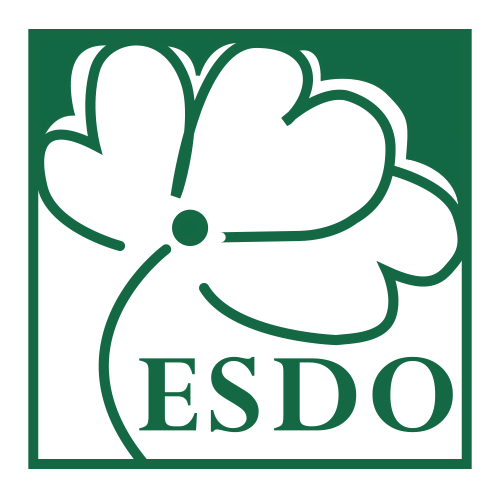Dhaka September 2, 2016–Rubik’s Cube, known as brain game toys; designed to exercise the mind, may contain toxic chemicals from recycled electronic waste, which can damage the central nervous system ironically, reduce children’s intellectual capacity.
The Environment and Social Development Organization-ESDO, a watch group on toxic chemicals and wastes, aired this observation following the announcement of the results of a global survey on toxic chemicals in brain toys at a scientific conference on persistent organic pollutants (POPs) in Firenze, Italyin the last week.
The study, undertaken by IPEN (a global civil society network promoting safe chemicals policies and practices) and Arnika (an environmental organization in the Czech Republic) in association with ESDO and other partner organizations in different countries of the world. The Study showed that samples of Rubik’s Cube-like toys from 16 countries, including Bangladesh, contained toxic polybrominated diphenyl ethers (PBDEs) called OctaBDE and/or DecaBDE.
Both OctaBDE and DecaBDE are brominated flame retardant chemicals primarily used in plastic casings of electronic products. These chemicals are known to disrupt human hormone systems, adversely impacting the development of the nervous system and children’s intelligence.
Out of the 41 samples of puzzle cubes and six additional samples (thermo cup, hair clip, hand band, finger skateboard, toy robot and hockey stick), as many as 40 samples (85%) contained OctaBDE at concentrations ranging from 1 to 108 parts per million (ppm), while 42 samples (89%) contained DecaBDE, a toxic chemical commonly found in electronic waste, between 1 to 293 ppm. OctaBDE is already banned under the Stockholm Convention on POPs, an international chemical treaty ratified by the Philippine government in 2004, while Deca BDE is expected to be banned when the POPs Review Committee meets on September 2016.
“Puzzle toys similar to Rubik’s Cubes are supposed to promote children’s intelligence, but the presence of brominated flame retardants from recycled e-waste creates the quite the opposite impact on children who play with them. Recycling e-waste can save resources and energy, but it must be done in a way that does not put banned toxic substances back into commerce, which can threaten human health and the environment,” explained Jitka Strakova, Coordinator of the survey from Arnika.
Eight of the twelve samples of Rubik’s Cube imported from China that the Environment and Social Development Organization-ESDO bought from retail shopsin Dhaka and shipped to the Czech Republic for laboratory analysis were found to contain significant levels of toxic chemicals such as PBDEs>PBT, BTBPE, OBIND, OctaBDE and/or DecaBDE.
Three of the samples from the Bangladesh tested with the highest concentration of OctaBDE among 47 samples from 16 countries, including the European Union, Eastern European and Southeast Asian countries.
Toxic chemical expert and ESDO Secretary General Dr. Shahriar Hossain said, our initiative is for the toxic free world, so that we urge the government to take initiative to prevent the use of banned chemicals from e-waste in all consumer products, such as toys and child jewellery. He informed due to inadequate chemical safety regulations, it is likely the toxic substances are being Dr. Shahriar said, “For the health of our children and workers, we urge our policy makers to grant no recycling exemption for POPs such OctaBDE and DecaBDE. This dirty recycling, which often takes place in low and middle income countries, is spreading poisons in recycling sites, in our homes and in our bodies”.
In 2009, the Stockholm Convention listed PentaBDE and OctaBDE for global elimination, but the treaty still permits the recycling of materials containing these toxic chemicals until 2030.
“As long as we allow, the recycling exemptions, we will be unable to control the flow of these dangerous flame retardants,” said Joe DiGangi, Senior Science and Technical Advisor of IPEN.
Environment and Social Development Organization-ESDO on Friday warned that some toys that are designed to exercise the mind may contain toxic chemicals from recycled electronic waste, which can damage the central nervous system and reduce children’s intellectual capacity.ESDO made known its apprehension following the disclosure of the results of a global survey on toxic chemicals in brain toys at a scientific conference on persistent organic pollutants (POPs) in Firenze, Italy.
Farther details please contact
Dr. Shahriar Hossain
E-mail: shahriar25@gmail.com
Mobile; 01711545066
